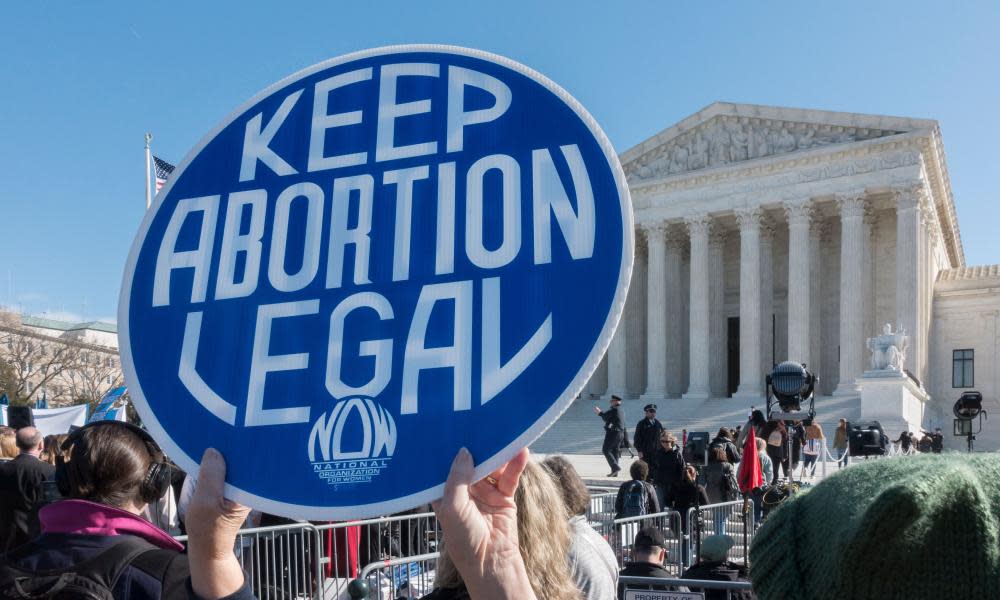Clinics in Ohio and Texas ordered to stop ‘nonessential’ surgical abortions

Ohio and Texas have ordered health care providers in the state to stop performing “nonessential” abortions, touching off a deeply contentious debate over reproductive rights in the midst of the global coronavirus pandemic.
Both states cited federal guidelines aimed at conserving necessary medical supplies to combat the spread of the coronavirus outbreak in the US and argued that abortions do not qualify as essential surgeries. But advocates say the moves taken by two conservative attorneys general is about advancing a political agenda, not protecting public health.
Ken Paxton, the Texas attorney general, said on Monday that abortion providers are subject to an executive order issued by the governor on Saturday requiring healthcare professionals to “postpone all surgeries and procedures that are not immediately medically necessary”.
Related: US supreme court takes up most high-profile abortion case in decades
“No one is exempt from the governor’s executive order on medically unnecessary surgeries and procedures, including abortion providers,” Paxton wrote. “Those who violate the governor’s order will be met with the full force of the law.”
Health care providers who do not comply with the directive could face fines of up to $1,000 or 180 days of jail time, Paxton said.
Ohio’s attorney general Dave Yost issued a similar directive last week, ordering two abortion providers in the state to stop “nonessential surgical abortions”. In letters to the providers, Yost said they were in violation of a 17 March order issued by the state health director.
In Ohio, Planned Parenthood, one of the providers that received the letter from Yost’s office, said it was in compliance with the order and would continue to provide abortions.
“Planned Parenthood’s top priority is ensuring every person can continue accessing essential healthcare, including abortion,” Planned Parenthood of Ohio said in a statement. “Under that order, Planned Parenthood can still continue providing essential procedures, including surgical abortion, and our health centers continue to provide services that our patients depend on.”
Amid the moves by Ohio and Texas, a coalition of anti-abortion groups urged its allies across the nation to ask governors to ban most abortions on the grounds they were not essential.
“If abortion is a choice, then abortion is an elective procedure,” said Mark Harrington, president of the anti-abortion group Created Equal.
Abortion-rights leaders nationwide decried the tactic, saying it was an affront to women grappling with difficult decisions amid the disruptions of the pandemic.
“Abortion is time-sensitive, essential health care,” said Katherine Hancock Ragsdale, president of the National Abortion Federation. “Women deserve better than a craven exploitation of a health care crisis in furtherance of an anti-abortion agenda.”
In Ohio, abortion clinics planned to remain in operation.
Jennifer Branch, an attorney for the Women’s Med Center of Dayton, said the clinic had already taken steps to minimize the use of personal protective equipment – one of the issues raised in the state’s order.
The CEOs of two Planned Parenthood affiliates in Ohio said their clinics also were in compliance, having cut back on the use of equipment that is in short supply.

